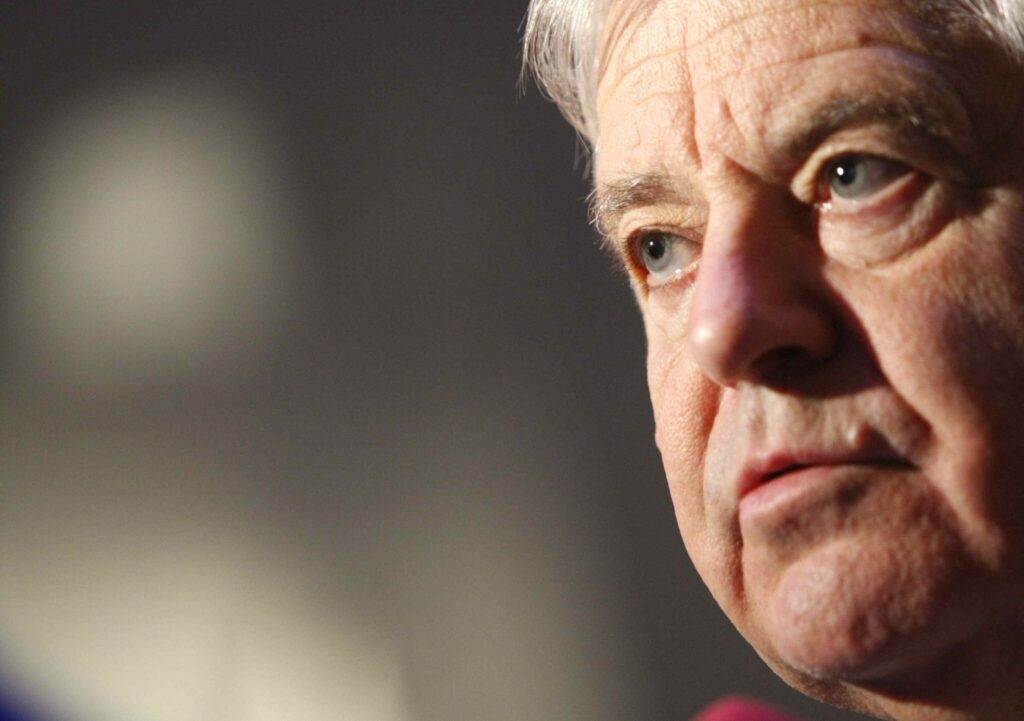The last Sunday in July is fast approaching, and just like every year, it will be marked by the traditional ceremony at the Russian Chapel. This time, due to the events in Ukraine, the event will supposedly be heavily reduced, with only “friends and members” accepting the invitation to attend. Unsurprisingly, former President of the Republic of Slovenia and the last head of the Communist Party of Slovenia, Milan Kučan, as well as Jože Colarič, who is the CEO and Chairman of the Management Board of the Krka pharmaceutical company, have announced their attendance. The event, in the current situation, is causing public outrage.
The Russian Chapel is a monument near Kranjska Gora, located along the path to the Vršič Pass, which was built under difficult war conditions by the Russian prisoners. Every year, a commemorative ceremony is held there in memory of all those who died during the construction of the road to Vršič. But the ceremony is not only one of a commemorative nature; it is also a first-class political spectacle that brings together the top of the Russian political leadership and pro-Russian Slovenian politicians, the first among them being Milan Kučan.
This is indeed a first-class political and morally irresponsible event, which is evidenced by the fact that it has been honoured in the past by the presence of Vladimir Putin himself, and many other political and military leaders from Russia. As the front page of the Delo newspaper shows, Milan Kučan justified his presence there by saying that the event was a commemoration of the dead and that it has nothing to do with the war in Ukraine. But to be honest, he could have remembered the dead at any other ceremony. The event at the Russian Chapel is really about a policy of rapprochement with Russia, which is currently committing war crimes on the territory of Ukraine, as professor and former Minister Žiga Turk lucidly reminded everyone in a Twitter post, writing the following: “We remember, don’t we, that Putin was at the Vršič celebration after the annexation of Crimea, after the shoot-down of the Malaysian aeroplane, and after the Russian collaboration with the Donbas separatists? That visit probably also had nothing to do with anything, right?” Moreover, this is an event that puts the soldiers of the other side centre stage. Let us remind you that Slovenians fought on the side of the Austro-Hungarian forces, and the Russians were our opponents. Why, then, are we seeing such strong support for someone who has nothing in common with us?
It would be quite difficult to get any closer with Russia
Milan Kučan could hardly grow any closer with Russia. Remember that after the beginning of the war in Ukraine, he organised a peace rally, together with the current coalition and the non-governmental sphere (namely, the Institute of the 8th of March), with which they wanted to encourage Ukraine to harm its own interests and cede a good part of its territory to the Russians. At the time, he stirred things up by saying that the blame for the war in Ukraine was divided between the invaded Ukraine and Russia.
Let us also remind you of the now-defunct petition that Kučan signed together with another former President of the Republic, Danilo Türk, and a handful of other intellectuals, many of whom history will remember as supporters of Slovenian disarmament at the time of our war for independence.
What is wrong with our historical memory?
The question posted online by the professor and former Minister Žiga Turk is quite justified – namely, he wondered what is wrong with our historical memory, since the only major and intensely covered ceremony that is connected to the First World War is one that commemorates foreign soldiers and not Slovenian soldiers who sacrificed their lives in the mountains above the Soča River.
Every life is irreplaceable, and all are to be revered, yet the ceremony at the Russian Chapel commemorates the deaths of 170 to 300 soldiers of the opposing side, while 3,500 Slovenian soldiers died during the Battles of the Soča Front. Estimates of Slovenian deaths during the entire First World War range from 36 to 40 thousand. “In Slovenia, the biggest (practically the only) event related to the whole First World War, the whole Soča Front, puts the soldiers of the opposing side at the centre of attention,” Turk concluded. It would have made much more sense for Kučan to visit the graves of Slovenians who died in World War I, but such processions are of no interest to the transitional left. The Kučan clan and Forum 21 seem to have openly collaborationist intentions with the opponents of the First World War and the opponents of the free world in the present.
Kučan’s determination at such ceremonies is reminiscent of someone who would make a spectacle every year at the graves of Nazi soldiers. Clearly, the ceremony at the Russian Chapel is an event with a strong political agenda and support of the Putin regime.
Andrej Žitnik


